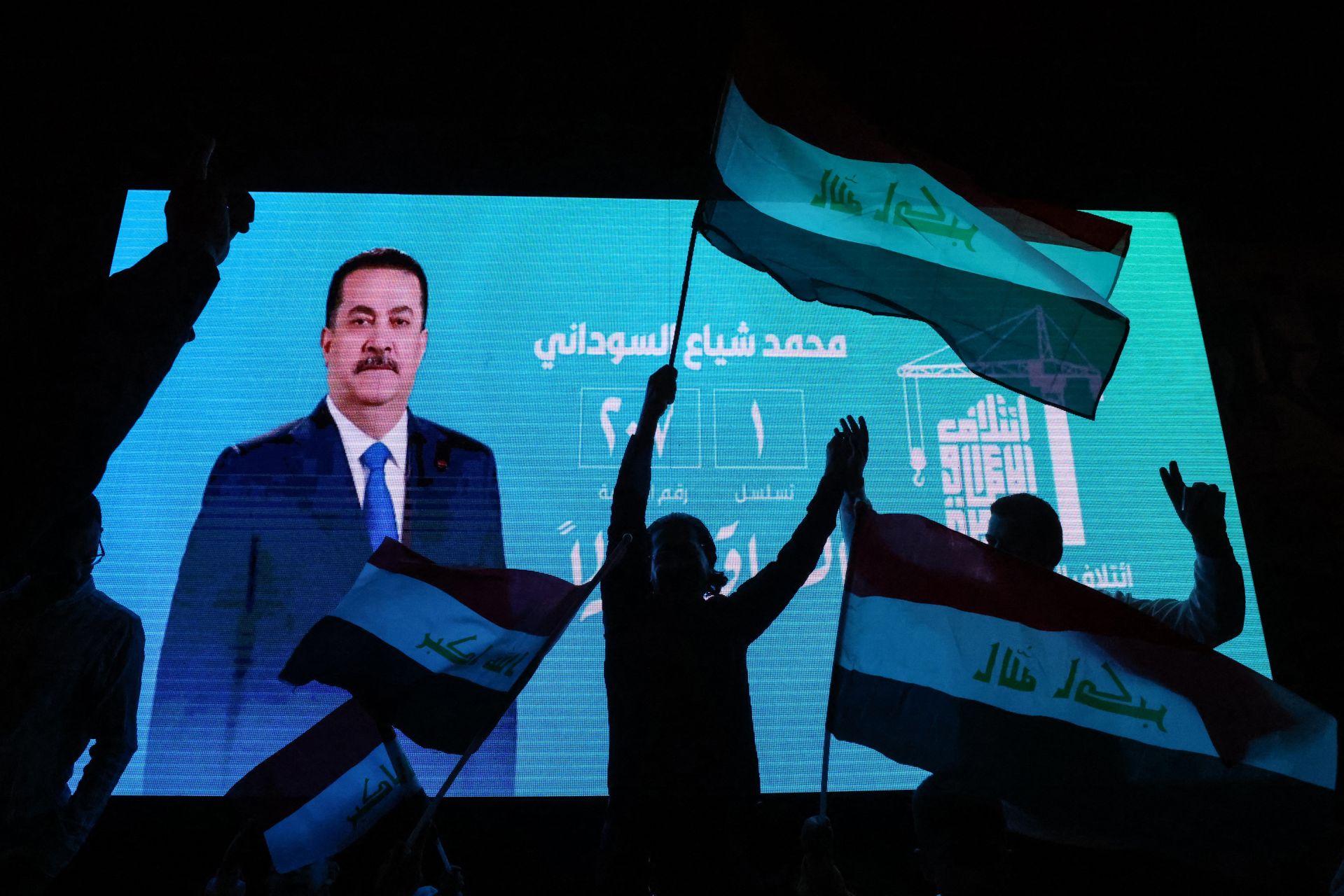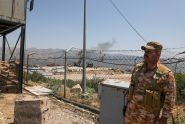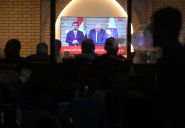- Home
- Middle East
- Iraq PM Sudani Claims Election Win after Early Results Show Decisive Lead

Supporters of incumbent Iraqi Prime Minister Mohammed Shia al-Sudani wave national flags in front of a screen displaying his portrait as they celebrate following the announcement of preliminary election results in Baghdad on November 12, 2025. ©Ahamd al-Rubaye / AFP
Incumbent Prime Minister Mohammed Shia al-Sudani claimed victory for his coalition on Wednesday in Iraq's general election after preliminary results showed it had secured a decisive lead.
Supporters of Sudani, who is vying for a second term, flocked late in the evening to Tahrir Square in Baghdad to celebrate with fireworks and music, according to AFP correspondents.
Casting the victory as one for all Iraqis in a televised speech, Sudani congratulated the country "on your coalition winning first place in the parliamentary elections."
"Our coalition, 'Reconstruction and Development,' is first," Sudani said separately on X, expressing "deep gratitude to the Iraqi people for their support."
Iraqis went to the polls on Tuesday for a general election that came as the country experienced a rare moment of calm in a region roiled by recent conflicts.
The next premier must answer to Iraqis seeking jobs, better infrastructure, and improved education and health systems in a country plagued by corruption and mismanagement.
But he also faces the unenviable task of maintaining the delicate balance between Iraq's allies, arch foes Iran and the United States, made all the more delicate by recent seismic changes in the Middle East.
Iraq's electoral commission announced preliminary results on Wednesday evening showing Sudani's candidate list in the lead with more than 1.3 million votes, about 370,000 more than the next closest competitor.
The commission said Tuesday that more than 12 million people took part out of 21 million eligible voters, despite influential Shiite cleric Moqtada Sadr calling on his supporters to boycott the poll.
While vote counts for each list by province were released, seat allocations in parliament will not be announced until later.
Difficult Task
An official close to Sudani had told AFP before the count was announced that his list was sailing to "a major victory".
Another two sources estimated Sudani's alliance had won the largest bloc, estimating it would take approximately 50 seats out of a total of 329.
Once final results are confirmed, lawmakers are set to begin negotiations to nominate the prime minister -- an often painstaking task that has at times taken months.
With an outright majority almost impossible to achieve by any single list, who gets the role is determined by whatever coalition can secure enough post-election partnerships to form the largest alliance.
In Iraq, the prime ministership goes to the Shiite majority, the speaker of parliament to a Sunni Muslim, and the largely ceremonial presidency goes to a Kurd.
In previous parliaments, Shiite-majority parties have struck compromise deals to work together and form a government.
Sudani emerged as a major force in Iraqi politics after he was brought to power three years ago by the Coordination Framework, an alliance of powerful pro-Iran Shiite parties who formed the largest parliamentary bloc.
A senior Iraqi politician told AFP last month that the Coordination Framework was divided over supporting Sudani, with former prime minister Nuri al-Maliki reportedly likely to oppose a second term for the incumbent.
Always a Balance
Even as Iraq tries to move past two decades of war since a US-led invasion toppled Saddam Hussein, the country of 46 million suffers from poor infrastructure and public services, mismanagement, and corruption.
Many Iraqis who boycotted the elections told AFP the vote wouldn't bring meaningful change to their daily lives and said that it was a sham that only benefits political elites and regional powers.
Sudani has nonetheless vowed to continue on the path of "reconstruction and development."
During his three-year tenure, Baghdad has been transformed into a bustling construction hub, with new tunnels and bridges springing up across the city.
He also maintains that his government helped shield Iraq from regional turmoil over the past two years.
Since the US-led invasion, Iran has held sway in Iraqi politics, not only backing influential politicians but also supporting armed groups there.
The past two years have seen Israel inflict heavy losses on Tehran-backed groups in the region, and Iran itself was on the receiving end of an unprecedented Israeli bombing campaign during a 12-day war in June.
In addition to maintaining its foothold through the groups it backs, Tehran is also seeking to keep the Iraqi market open to products from its crippled economy.
Washington meanwhile hopes to cripple Tehran's influence, and has long pressured Baghdad to disarm Iran-backed groups.
AFP
Read more



Comments